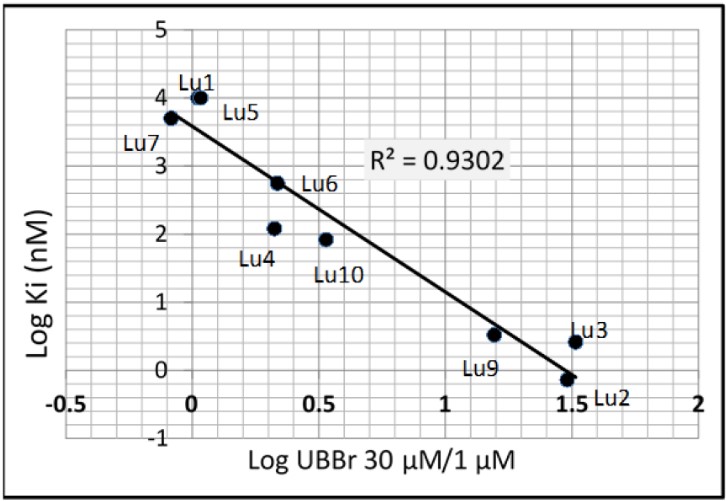Brain Tissue Binding Evaluation Service
Brain tissue binding evaluation is a crucial aspect of the drug development process, especially for pharmaceuticals targeting central nervous system (CNS) diseases. Creative Biolabs excels in offering comprehensive brain tissue binding assays tailored to evaluate the binding properties of drugs, thereby aiding in the optimal development of CNS therapeutics.
Applications of Brain Tissue Binding Evaluation
Accurate measurement of drug binding in brain tissue is integral for diverse pharmaceutical applications, including but not limited to:
-
Predicting Drug Efficacy and Safety
Understanding drug distribution within the brain helps predict both therapeutic efficacy and potential CNS-related side effects. Drugs intended for CNS targets must achieve sufficient free (unbound) concentration at their site of action to exert their effect, while non-targeted drugs must be evaluated for potential toxic CNS exposure.
-
Drug Discovery and Development
During the drug development process, lead compounds undergo rigorous testing for CNS permeability and binding characteristics. This evaluation helps in the selection of candidates with optimum brain penetration and minimizes the likelihood of adverse CNS effects.
-
Pharmacological and Toxicological Studies
Brain tissue binding studies contribute to predicting in vivo drug clearance, human dosing, cross-species comparison, and elucidation of potential pharmacological and toxicological effects, making these assays invaluable in preclinical and clinical research.
Brain Tissue Binding Evaluation Service at Creative Biolabs
Creative Biolabs provides cutting-edge brain tissue binding evaluation services designed to assess the binding characteristics of drug compounds in the brain accurately. This service utilizes a series of meticulously developed in vitro and in vivo assays to predict the brain penetration and distribution of drug candidates. Our approach is grounded in rigorous scientific methodologies and state-of-the-art technologies, ensuring reliable and reproducible results.
In Vitro Assays
ADME analyses: metabolic stability in hepatic microsomes, Caco-2 permeability, and CYP interactions.
Specific assays: MDCK-MDR1 cell permeability, equilibrium permeation of plasma, and brain homogenate analysis.
In Vivo Assays
Evaluation of pharmacokinetics and brain-to-plasma ratio of the compound.
Equilibrium dialysis to determine the extent of compound binding to brain tissue.
Highlights of Our Services
-
Accurate Determination of Unbound Drug Fraction
-
In-Depth Assessment of Drug Distribution
-
Predictive Modeling
Scientific Backing
The use of brain tissue binding evaluation is well documented in the scientific literature. For example, research shows that target proteins, such as heat shock protein 90 (HSP90), significantly influence drug binding to brain tissues by brain tissue binding evaluation. Studies demonstrate that assessing unbound fractions in brain homogenates is affected by HSP90 target interference, complicating the linkage of systemic free drug concentrations to the unbound CNS concentrations vital for accurate pharmacokinetics/pharmacodynamics (PK/PD) modeling and human dose prediction.
 Fig.1 The association between change in brain tissue binding and HSP90 affinity.1
Fig.1 The association between change in brain tissue binding and HSP90 affinity.1
Frequently Asked Questions and Answers
Q1: How does Creative Biolabs differentiate brain tissue binding from plasma protein binding?
A1: The brain and plasma have distinct compositions, with substantial differences in protein and lipid content. Creative Biolabs specifically focuses on the brain's unique environment, providing accurate unbound fraction measurements that are not influenced by plasma properties.
Q2: What techniques are used in brain tissue binding assays?
A2: We employ equilibrium dialysis using brain homogenates and sophisticated LC-MS/MS for quantification, ensuring high precision in our measurements.
Q3: How do BBB characteristics influence drug penetration?
A3: The BBB selectively restricts drug entry into the brain. Creative Biolabs evaluates BBB permeability and lipophilicity of drugs to predict their ability to enter the CNS effectively.
Creative Biolabs provides a robust and scientifically-backed brain tissue binding evaluation service, essential for the successful development of CNS-targeted therapeutics. Our comprehensive approach ensures accurate predictions of drug behavior and supports optimal drug development strategies.
Reference
-
Badolo, Lassina, et al. "Target-mediated brain tissue binding for small molecule inhibitors of heat shock protein 90." Pharmaceutics 12.11 (2020): 1009.
For Research Use Only | Not For Clinical Use


 Fig.1 The association between change in brain tissue binding and HSP90 affinity.1
Fig.1 The association between change in brain tissue binding and HSP90 affinity.1
 Download our brochure
Download our brochure